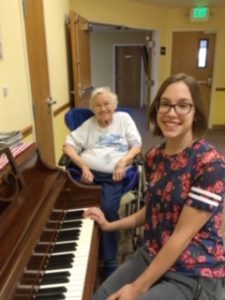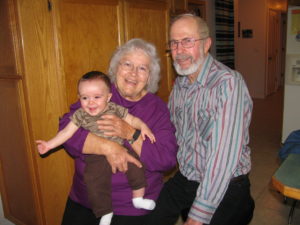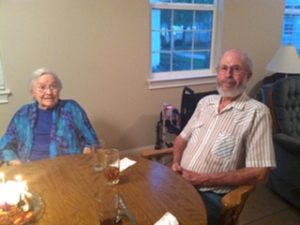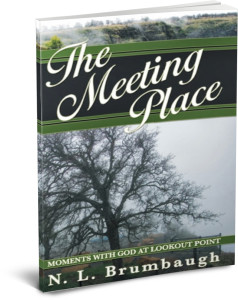
Remembering Mother
MY FIRST MOTHER’S DAY without my mother was one of quietness. My mother passed from earthly life last August. Of Mother’s children, I lived the closest in proximity. Making Mother’s Day special for my mother was always a priority with me. My folks would be invited over for a meal, and I had a gift waiting for her. The kids would come, and we’d have a nice time together. I wanted Mother to know she was loved and appreciated.
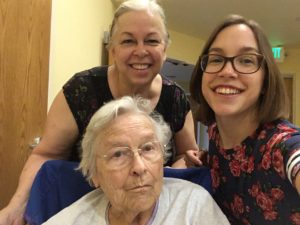 I thought about Mother a lot this past Mother’s Day. Several of you asked me how I was doing. Melancholy is the best descriptor. But I talked with each of my five children, and it was my time to shine. That helped.
I thought about Mother a lot this past Mother’s Day. Several of you asked me how I was doing. Melancholy is the best descriptor. But I talked with each of my five children, and it was my time to shine. That helped.
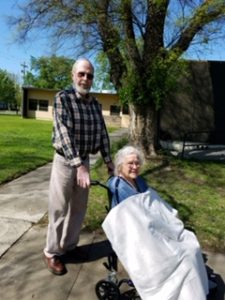 A year ago my mother was quite unwell. I believed it would be her last Mother’s Day. I spent the day with her at the assisted living facility. She no longer was ambulatory. My father came. I was moved in my heart as I watched him interact with his “love,” his beloved bride of sixty-seven years.
A year ago my mother was quite unwell. I believed it would be her last Mother’s Day. I spent the day with her at the assisted living facility. She no longer was ambulatory. My father came. I was moved in my heart as I watched him interact with his “love,” his beloved bride of sixty-seven years.
I wanted to remember the day. I drove to my home, grabbed a pen and legal notepad, and began to write. My thoughts flowed onto the paper.
The day was one of impressions. Here are my thoughts from my mother’s last Mother’s Day.
. . .
2018 Mother’s Day
MY DEAR MOTHER sits there in a wheelchair. I hold her hand in mine and remember the journey of our lives. She smiles at me. Her kind, gracious look remains the same though much else has changed in recent years.
Dementia and ill health have robbed her of how she used to live, but not of everything. The decline has been slow at times and rapid at other times, then she rebounds and rallies, until the next round. The cycle is wearing on both of us. The visits to the Emergency Room have been too frequent and too many. I miss the mom she was to me, to all of us, my siblings, our children and grandchildren, and the wife she was to our father.
Mother reaches up for a kiss. It feels foreign to me but I oblige because it matters to her. I am a little girl again, kissing my mother and father goodnight. I remember back to when that stopped. I knew I was getting too old to kiss my folks at bedtime. I was a big girl now, and it embarrassed me. But we’re back there again. A kiss on the forehead is more natural for me, and Mom likes that, too.
Today is Mother’s Day. My mother is struggling. She is more “away” from my dad and me, than with us. I help feed her. Yogurt is more welcome than the other entrées. The meal done, we go to her private room in the care facility.
 Dad attempts to engage Mother in conversation, but her look is vacant and her words, sparse. He reads a devotional while facing her, two feet in proximal distance from her wheelchair. Tears form in my eyes. It is two years since my folks have lived at home together in the ranch house on the family farm, but their love is steady. Dad wishes she were better, more like the woman he married and she used to be. He longs for a conversation with her. I see it in his face, hear it in his voice, and listen to it in his questions and comments.
Dad attempts to engage Mother in conversation, but her look is vacant and her words, sparse. He reads a devotional while facing her, two feet in proximal distance from her wheelchair. Tears form in my eyes. It is two years since my folks have lived at home together in the ranch house on the family farm, but their love is steady. Dad wishes she were better, more like the woman he married and she used to be. He longs for a conversation with her. I see it in his face, hear it in his voice, and listen to it in his questions and comments.
Though they’ve never been the demonstrative type, I see the care and loving, Mom’s face lights up when Dad is with her. His desire is to please her in little and thoughtful ways. Watching them together today makes me want to cry. I take a mental snapshot to chronicle the two of them doing life together for this brief moment in time.
I believe this will be my last Mother’s Day with my mother. A lump in my throat makes it hard to swallow. I’m watching something special unfold. Dad feeds his wife a bite of something delicious that she likes, strawberries, and I think of the strong farmer man he has always been and how his tender-side has come out more-pronounced in recent months. He hopes for better days ahead, and there have been a few “better days,” though infrequent.
I love my mother. She is the quiet type, rarely praising or giving compliments, but not given to criticizing or scolding, either. I have rested secure in her love for me, as has my whole family. Her acts of service were selfless and genuine. I am ashamed that at times I have been impatient with her in my thoughts when I should have been more patient. That mother-daughter thing can be a silly beast.
To be honest, sometimes this part of life is draining, and you wish there were easier ways to age–to age gracefully, as they say. I am aware of my mother’s facial expressions, they tell me if she is okay or in pain. I wish for the impossible. I wish she could play her beloved violin one last time.
When your parent goes silent is when you wish to ask them the questions you should have asked long ago. You want to know the details of their story—like when your mother as a young girl with her mother, rode on the tram, because they didn’t own a second car, into Los Angeles so she could take violin lessons. How was that?
What were your mother’s happiest moments or favorite songs? What were her youthful dreams, and how did she know your father was the right one? The answers are now lost to us. “I don’t remember,” is what she replies when asked almost any question these days. Too much of this kind of questioning, I think, diminishes her. I’ve quit asking what she probably can’t remember anyways, and have stopped correcting any incorrect responses. A few queries still slip out on her better days.
But the love remains. Mother’s expression brightens when I greet her on any given day. We do our own routine. I comb her hair the way she’s always worn it, then hand her an uncapped lipstick and hold the mirror for her. Once the lipstick is on, she looks more like the mom I know. I tell her she looks pretty—and she does—and then she smiles and says something sort of humorous, poking fun at herself.
Most days Mother listens when I read to her and laughs when I tease or say something funny. Sometimes her comments are delightful and we both grin. This tells me she is still with us on some level. Those times when I read her my most recent blog post, she loves it. I know this because she is fully alert and awake during the reading of it and responds appropriately. Her daughter wrote it, and that is why she listens. This is joyful.
The visit ends with my arm around her shoulders. I pray for her needs and for God to help her, to bring his presence near that she might know peace and comfort in a tangible way. This afternoon she kissed my forehead when I hugged her before leaving. These visits with my mother are precious, and I cherish them.
What I have learned is you must remember the good you shared as family even though your heart is weeping in the silence. You now find ways to connect with your loved one through voice, song, music, touch, reading a book or favorite magazine, doing a puzzle together, coloring a coloring page side-by-side, and through visual expressions. Sometimes you bring small surprises to uplift your loved one’s mood.
In their own way, the parent you know and love still has gifts to give. The staff that cares for my mother all say the same thing, I have heard it many times over. “Your mother is sweet,” they say. It used to surprise me because of the many changes that aging has brought to her, but their words please me. I realize the sweet mama I have always known has retained her gracious spirit in spite of physical challenges and medical emergencies, which is an encouraging thought. I am blessed by it.
The aging process when viewed from the caregiver, adult child or mate’s perspective is a difficult one in many respects. The losing them process may be spread over years. One derives comfort from your best memories with them in better days. You remember the skills, gifts, and graces they brought to your life.
I look at my mother’s hands, hands that played the violin masterfully, sewed skillfully, painted beautifully, and loved, gardened, and cooked bountifully. Mother’s creativity was as much a part of her as her faith. Her artistry flowed on the canvas and throughout our home, in music, in creative, practical crafts and undertakings.
Mother was amazing, she even made a pair of water skis, a butcher block, and three turkey cutting boards. Mother painted, knitted, crocheted, cross-stitched, and she sewed blankets, jackets, drapes, clothing, and her wedding dress (and mine). There was much more that she did, of course, but now they are distant, forgotten endeavors she no longer has any memory of. This knowledge fairly breaks my heart.
“Her children rise up and call her blessed” is a scripture that supports my sentiment. My heart is tender. I wish my mother could know how very dearly and in high regard, we as her children and family esteem her. Not long ago I communicated with three of her first cousins, and they all responded the same, “I’ve always looked up to your mother. She is such a wonderful person.” That’s high praise. Mother, as a humble person, was surprised when I told her. Their words encouraged my siblings and me.
You get stretched in many directions as you try to do the best you can for your parents. Kindnesses matter. Physical presence matters. Cards and gifts, flowers, loving acts still matter, even though they may not be acknowledged. Love always speaks as love does, from the heart.
How do I end this? I don’t know. The rest of my mother’s earthly journey is still to play out. What excites me, though, is there is another journey in her future. This one will be happy with many joys and full of love, and it won’t have any pain, suffering or sorrow.
Tender love that expresses itself in my emotions and words is what I am now experiencing and is part of my own journey. I embrace this as part of being alive for it documents my care and love for my precious mother, and that is good.
. . .
In Conclusion
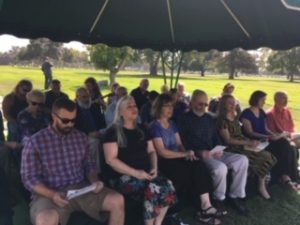 We said goodbye a few months later, and so did our hearts. But we know this is not the end. Our family understands that this is a time of waiting. Along with them, I will see Mother again on that bright and beautiful day when we meet again in that home beyond this earthly sphere.
We said goodbye a few months later, and so did our hearts. But we know this is not the end. Our family understands that this is a time of waiting. Along with them, I will see Mother again on that bright and beautiful day when we meet again in that home beyond this earthly sphere.
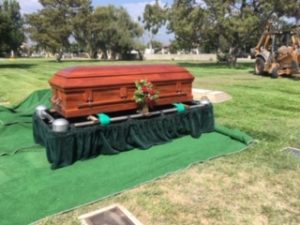 Until we meet again, dear mother, I will think of you and miss you. I love you more than words can say.
Until we meet again, dear mother, I will think of you and miss you. I love you more than words can say.
Missing you, dear mother.

